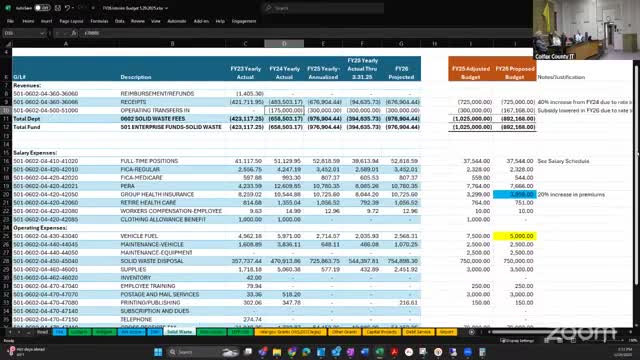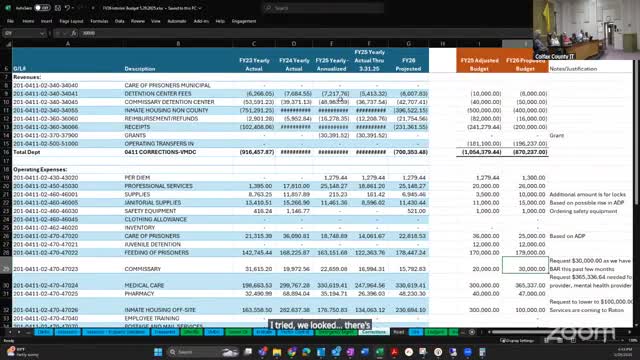Article not found
This article is no longer available. But don't worry—we've gathered other articles that discuss the same topic.

Solid waste fund near balance but relies on subsidy; contractor rate increases flagged as possible pressure point

Detention leader says commissary, staffing already at minimum as commissioners probe $170 inmate‑housing rate

Commissioners weigh leasing vs. purchasing road graders as five leases near expiration

